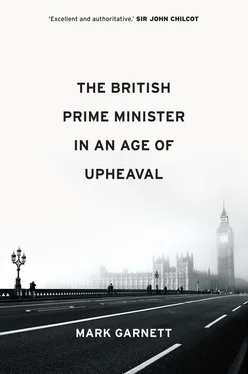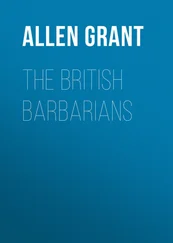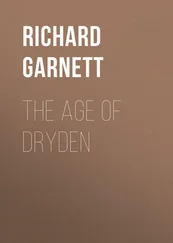It could be argued that too much of the political science literature on the British Prime Minister has been vitiated by disciplinary perspectives. If we cannot hope for ‘joined-up government’, we can at least aspire to joined-up thinking, approaching recent developments in the Prime Minister’s position without theoretical preconceptions. The changes in the role since Thatcher will become apparent to anyone who reads Harold Wilson’s contribution to the debate. In The Governance of Britain (1976), Wilson still felt able to describe the role of the British Prime Minister as ‘one of the most exciting and certainly one of the best organised’ positions in the democratic world (Wilson, 1976, x). If at least one of these claims is no longer true – and ‘well organised’ is not the term which immediately springs to mind in relation to any aspect of the contemporary British political system – inquiries into the most probable causes must be as broadly based as possible, and as free as humanly possible from any ‘mind-forged manacles’.
Rationale and structure of the book
The approach of this book reflects my view that attempts to draw on all of these sources, updated and reassessed at suitable intervals, can themselves serve as useful contributions to the subject, and that these exercises have been too rare. Ideally, books of this kind can be written in a way which informs the general reader as well as offering suggestions for students. The main purpose of this attempt is to provide evidence and analysis which allow all readers to draw their own conclusions about changes in the Prime Minister’s role since 1979. In the interests of brevity, and to de-clutter the text, I have tried to confine the references to occasions when particular works really need to be cited. The bibliography would have been much longer if it had included even a representative sample of the publications which have affected my views on this subject.
The remaining chapters of the book deal with various aspects of the Prime Minister’s role. The format is thematic, but within each of the themes the treatment is broadly chronological (normally beginning with Thatcher and ending with Theresa May – the early part of the Johnson premiership is discussed in the concluding chapter). There is no attempt to provide an exhaustive list of the Prime Minister’s resources, and some aspects of the position (e.g. its reliance in so many ways on prerogative powers, and responsibilities in relation to nuclear weapons) do not figure prominently in the discussion compared to the invaluable works of scholars like Lord (Peter) Hennessy (see, for example, Hennessy, 2000, 102–46). The primary focus of the present study is on the factors which have allowed Prime Ministers to retain so many of the duties and privileges once assigned to the monarchy, despite the subsequent introduction of democratic procedures.
With a structure which is chronological as well as thematic, the book can also serve as a history of UK politics since 1979 – albeit one which is skewed towards the prime ministerial perspective. This explains why devolution within the UK does not feature heavily – British Prime Ministers, including Blair, who oversaw the beginning of the process, have acted as if this constitutional development never happened. The reality, of course, is very different, and the divergencies between the various components of the UK have become increasingly important thanks to the 2016 referendum and the Covid-19 pandemic (which also revealed the centrifugal potential of directly elected Mayors, particularly in the north of England). My only excuse for adopting the prime ministerial perspective is that a separate full-length book would be required to do justice to the subject of devolution.
The composition of the book has coincided with momentous developments; indeed, it could be argued that the British public has been subjected to continuous upheaval since the financial crisis which began in 2007, giving it little chance to pause for reflection. Whatever challenges might come in the future, it is unlikely that the British political system will be capable of meeting them unless the prime ministerial role is reconsidered. H. H Asquith – who was well qualified to pass judgement – famously wrote that ‘The office of the prime minister is what its holder chooses and is able to make of it.’ The main conclusion of this book is that the one thing a contemporary Prime Minister cannot ‘choose’ to do is to make a success of the role, which has become increasingly dysfunctional along with the other institutions of Westminster and Whitehall. The only recourse for Prime Ministers who care for ‘the verdict of history’ is to fall back on a minimalist definition of ‘success’ – that is, in terms of victory in the next election, even if this is owed primarily to weaknesses or divisions among Opposition parties. For a healthy liberal democracy this would hardly suffice as a measurement of ‘success’: in particular, it implies that whenever the national interest conflicts with the electoral needs of the Prime Minister’s political party, the incumbent of No. 10 is now under overwhelming pressure to prefer the latter. The unsettling signs in recent years that British Prime Ministers have learned to accept this as their over-riding ‘performance indicator’ is one of the main motivations for this book about their role.
Parliament – and more specifically the House of Commons – is a convenient place to start an exploration of the Prime Minister’s role. In his great 1867 study of the ‘English’ constitution, Walter Bagehot depicted the Commons as a glorified electoral college: its members chose the Cabinet, which in turn nominated one individual to serve as head of the government (Bagehot, 1963, 150–2). In Bagehot’s day, MPs were relatively free from party discipline, and the requirement that the Prime Minister should be able to muster a majority in the Commons meant that proven parliamentary performers (even if they happened to be members of the House of Lords, in those days before its powers were curtailed) enjoyed a considerable advantage when the ‘electoral college’ made its choice.
In the past, Prime Ministers tended to be chosen because they commanded the confidence of the Commons. Now, when Prime Ministers command the confidence of the Commons they do so because they are Prime Ministers. The purpose of this chapter is to examine the changing relationship between Prime Ministers and the Commons in recent decades, and the way in which the ‘majority leader’ is selected today.
The Prime Minister in Parliament since 1979
The fact that Prime Ministers are elected to the House of Commons on the same territorial basis as other MPs is never forgotten either by holders of the office or by their constituents. The latter rarely feel that they are inadequately represented, since Prime Ministers always have a well-qualified team to deal with any local or national issues which constituents might raise, and their visits are likely to evoke feelings of pride and gratitude even among residents who voted for one of their opponents. Prime Ministers are usually glad to return the compliments, claiming that the freely expressed views of their constituents help to keep them ‘grounded’ in public opinion more generally. Yet this commendable attempt to feel the public pulse is not necessarily very informative, since the mere fact of being Prime Minister seems to have a distorting effect on the mindset of one’s constituents. Since 1979, in every general election after a Prime Minister has stood down as an MP, the vote for her or his successor as the party’s constituency candidate has declined.
Not even the most earnest and perceptive Prime Minister will find it any easier to monitor the mood amongst MPs, which is much more volatile and likely to be concealed from those who seek to gather information on the Prime Minister’s behalf. If Prime Ministers conduct their own fact-finding exercises – for example by touring the numerous places of refreshment available to MPs at Westminster – the response is likely to be even less informative. At larger gatherings, like the notorious Conservative 1922 Committee, the banging of desks to greet the Prime Minister could mean almost anything – even, occasionally, sincere support.
Читать дальше












